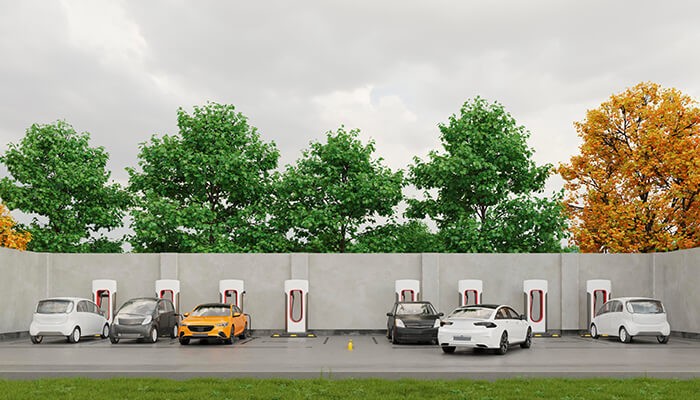A parking management system is a collection of technologies and options intended to enhance parking space consumption, improve user experience, and increase traffic efficiency. In this article, we’ll examine the essential components of a thorough Electric Vehicle parking management system and the way it helps parking operators and customers.
Systems for managing parking have changed how we think about parking. While not all of the aforementioned functions must be present in a parking management system, a good system will contain the ones that matter to you the most.
In order to monitor parking space occupancy in real-time and enhance user experience, parking management systems make use of smart technologies including mobile apps, IoT-based parking sensors, and license plate recognition. Mobile applications or digital signage then communicate this information to users, directing them to open parking spaces. Additionally, online reservation and booking tools let consumers reserve spots in advance, and cashless payment methods streamline the transaction process.
Below are the general insights into how electric vehicle parking management systems can meet the unique requirements of businesses.
Customizable charging infrastructure
EV parking management systems can be tailored to accommodate the specific needs of a business. This might involve installing a mix of regular charging stations, fast chargers, and ultra-fast chargers to cater to various types of EVs and charging needs.
Businesses can control who has access to their charging stations, whether it’s employees, customers, or partners. They can set up authentication methods like RFID cards, mobile apps, or access codes.
Charging infrastructure planning
These systems can help businesses design an efficient and effective charging infrastructure layout based on their parking space availability and the expected demand from EV users.
Usage tracking and reporting
These systems allow businesses to monitor charging station usage, energy consumption, and other relevant data analytics. This information can be used for billing purposes, internal reporting, and optimizing charging station placement. Data analytics can help them make informed decisions about expanding charging infrastructure or optimizing its usage.
Billing and payment integration
Many EV parking management systems support automated billing and payment processes. Businesses can set up pay-per-use models, subscription plans, or other pricing structures to cover the cost of electricity and maintenance.
Integration with fleet management
For businesses with electric vehicle fleets, parking management systems can integrate with fleet management software, helping them schedule charging times, track vehicle utilization, and manage maintenance.
Scalability and expansion
As businesses grow and require more charging stations, these systems can be easily scaled to accommodate the increased demand.
Remote monitoring and management
Remote access and control of charging stations allow businesses to diagnose issues, perform updates, and manage settings without needing to be physically present at the location.
Integration with energy management
Some businesses might require integration with their energy management systems to optimize charging times based on energy demand and cost. This can help in reducing energy expenses and grid impact.
EV parking management systems can include features that optimize energy usage, preventing overloading of the electrical grid during peak times and distributing energy more evenly.
User-friendly interfaces
A user-friendly interface, whether it’s a mobile app or a web portal, makes it easy for EV users to find available charging stations, start and stop charging sessions, and receive notifications.
Sustainability and brand image
Investing in EV charging shows commitment to sustainability, boosting brand image.
Regulatory compliance
These systems can help businesses comply with relevant regulations, such as accessibility requirements for disabled users and data privacy laws.
Customer engagement
Businesses can engage with their customers by offering loyalty programs, discounts, or promotions for using their charging stations.



